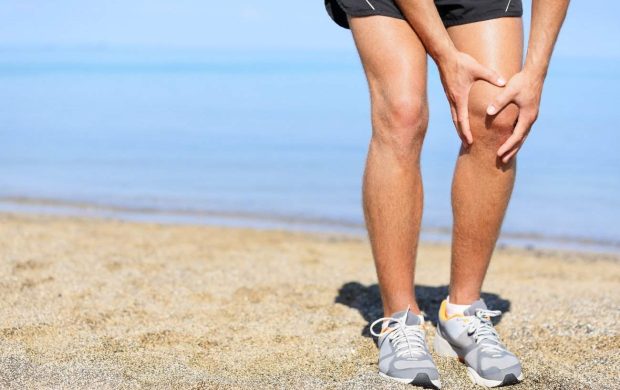Marathon runners are often praised for their discipline and endurance, but the punishing run can take a toll on their muscles. In this article, we will outline the key steps you need to take to speed muscle recovery after running a marathon. By following these tips, you will be able to jump back into your regular exercise routine much faster and with fewer setbacks.
How Long Does it Take for Muscle Repair to Occur?
Muscle repair can take anywhere from 48 to 72 hours, but the average time is around 48 hours. This time frame depends on a number of factors, including how severe the muscle damage was and how active the individual was before the injury occurred.
Tips for Speed Muscle Recovery After a Long Run

If you ran a marathon, your muscles will likely feel sore and tired the next day. Here are some tips for speeding muscle recovery:
- Take it easy the first day after your marathon. You might feel like you could do more, but in reality your muscles are still recovering.
- Drink plenty of fluids during and after your run. This will help replace lost fluids and promote muscle healing.
- Use ice packs or cold water bottles to apply pressure to sore muscles. This will help reduce inflammation and speed muscle recovery.
- Take ibuprofen or other pain relievers as needed. This will help reduce any discomfort and speed muscle recovery.
- Hydration Spa is also a great way to recover your muscles after marathon trainings.
Easing Into Your Running Routine After Marathon Training
If you’re recovering from a marathon, your body is probably telling you to take it easy. But that doesn’t mean you can’t start running again right away. In fact, easing back into your running routine can help speed muscle recovery and prevent injury. “Easing back into running after a marathon means gradually increasing the amount of time you spend running each week,” says Tara Stiles, PhD, author of “The Female Runner’s Guide to Marathon Training.” “Start by running for 10 minutes at a slow to moderate pace, and gradually increase the time each week until you’re running for 30 minutes or more at a moderate to fast pace.”
Here are some other tips for easing back into your running routine:
- Start with shorter runs. After finishing a marathon, most runners feel like they need to run long distances immediately. But Dr. Stiles recommends starting with shorter runs — around 5 or 6 miles long — to ease back into exercise. “These types of starts will help minimize the risk of overtraining and promote muscle adaptation,” she says.
- Gradually increase mileage. After your short runs, gradually add more miles to your weekly schedule so that you reach your desired total mileage. “Rather than reaching for the miles immediately after your marathon, try to ease back into running gradually,” Dr. Stiles says. “This way you’ll avoid overtraining and minimize the risk of injury.”
- Run with a partner. Running can be a solitary sport, but it can also be more enjoyable when done with a partner. “Running with a friend or partner can boost your motivation and encourage you to continue running even when you’re feeling tired,” Dr. Stiles says.
- Use a training plan. If you’re not an experienced runner, using a training plan can help you ease back into your running routine safely and effectively. “A training plan will include specific mileage goals, intensity levels, and rest days so that you make sure you’re progressing slowly and steadily,” Dr. Stiles says. “This way, you don’t overtrain and injure yourself.”
How to Prevent Injury During Marathon Training?

If you’re planning to run a marathon, it’s important to remember to take care of your body. One way to prevent injury is to speed muscle recovery after running. Here are four tips for speeding muscle recovery:
- Take a hot bath or shower immediately following your run. This will help to relax your muscles and reduce inflammation.
- Eat a high-quality protein and carbohydrate meal within 30 minutes of your run. This will help to refuel your muscles and promote muscle growth.
- Practice yoga or another form of gentle stretching following your run. This will help to improve circulation and reduce inflammation in the muscles.
- Take ibuprofen before and after your run if you experience pain or inflammation in the muscles. Ibuprofen is a safe and effective way to reduce the amount of pain you feel after running.
Hydration and Fueling Advice for Marathon Runners
One of the most important things that marathon runners can do to speed muscle recovery is to drink plenty of fluids and fuel their bodies properly. In order to help runners optimize their hydration and fueling strategies, we asked three experts for their tips.
“Aim for about 64 ounces (2 liters) per hour during your race,” says Timothy Noakes, MD, author of Lore of Running and a professor at the University of Cape Town in South Africa. “That means sipping on water or sports drinks every 2-3 hours, plus a full meal or snack every 12-16 hours.”
Another key strategy: “ Eat high-quality protein as soon as possible after your race,” says Noakes. “This will help reconstruct muscle and speed up the healing process.” Some good sources of protein include Lean Cuisine meals or shakes, cottage cheese, Greek yogurt, and eggs.
Finally, consume plenty of fruits and vegetables to help replenish depleted nutrients. “Eating these foods will also provide antioxidants that can protect cells from damage,” says Noakes.

Summary and Conclusion
When it comes to muscle recovery after a marathon, there are a few things you can do to speed up the process. By following these tips, you’ll be able to get back to your regular routine much more quickly and avoid any setbacks.
In general, it’s important to take the time to properly rest and rehabilitate your muscles after a strenuous race. By following these simple tips, you can help ensure that your body recovers in a timely manner and that you can continue to enjoy your running routine without any setbacks.




